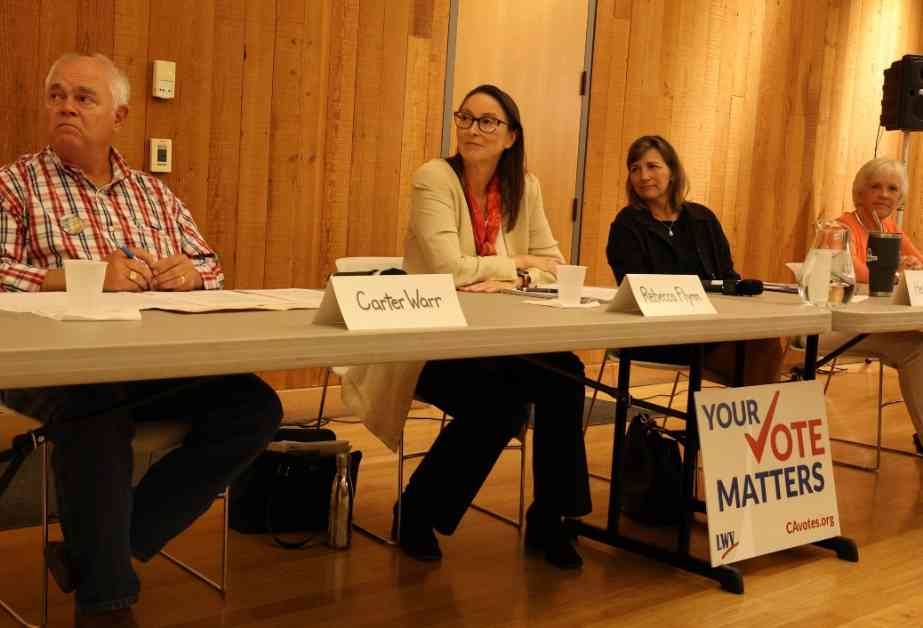Portola Valley, a town known for its wealth in California, is facing a financial crisis that has been exacerbated by various factors. The COVID-19 shutdown in 2020 led to staff turnover in the financial department, resulting in three unaudited years and drained reserves, leaving only $700,000 in unrestricted funds. The town’s Finance Director, Anthony McFarlane, and his team are working to balance the budget and propose solutions to the town council.
One of the main issues contributing to the financial crisis is the housing expenses stemming from the California housing element law and the increasing costs of the sheriff contract. Staff turnover and rising legal and consultant fees have further worsened the situation. The current Mayor, Sarah Wernikoff, highlighted the seriousness of the situation before her term expires this year.
Despite the challenges, the town seems to have been relying on reserves to cover the financial gaps. However, Planning Commission Chair Jon Goulden warned that these reserves are running out. With two vacant council seats, four candidates are competing for solutions to improve the town’s financial standing.
Rebecca Flynn proposes a revenue-enhancing ballot measure, such as a real property transfer tax or a parcel tax, to boost town finances. She emphasizes the importance of involving committee expertise and holding town forums to address the crisis. On the other hand, Carter Warr opposes new taxes and suggests more frequent council meetings for public input and discussion.
Candidate Helen Wolter focuses on addressing staff turnover and making the town budget transparent to the public. Similarly, Ellen Vernazza aims to increase accountability and transparency in financial management by the county. These candidates offer different approaches to tackling the financial crisis in Portola Valley.
The upcoming election on Nov. 5 will determine the new council members who will have the task of navigating the town through these challenging financial times. It is crucial for residents to stay informed and engaged in the decision-making process to ensure the town’s financial stability and growth in the future.


